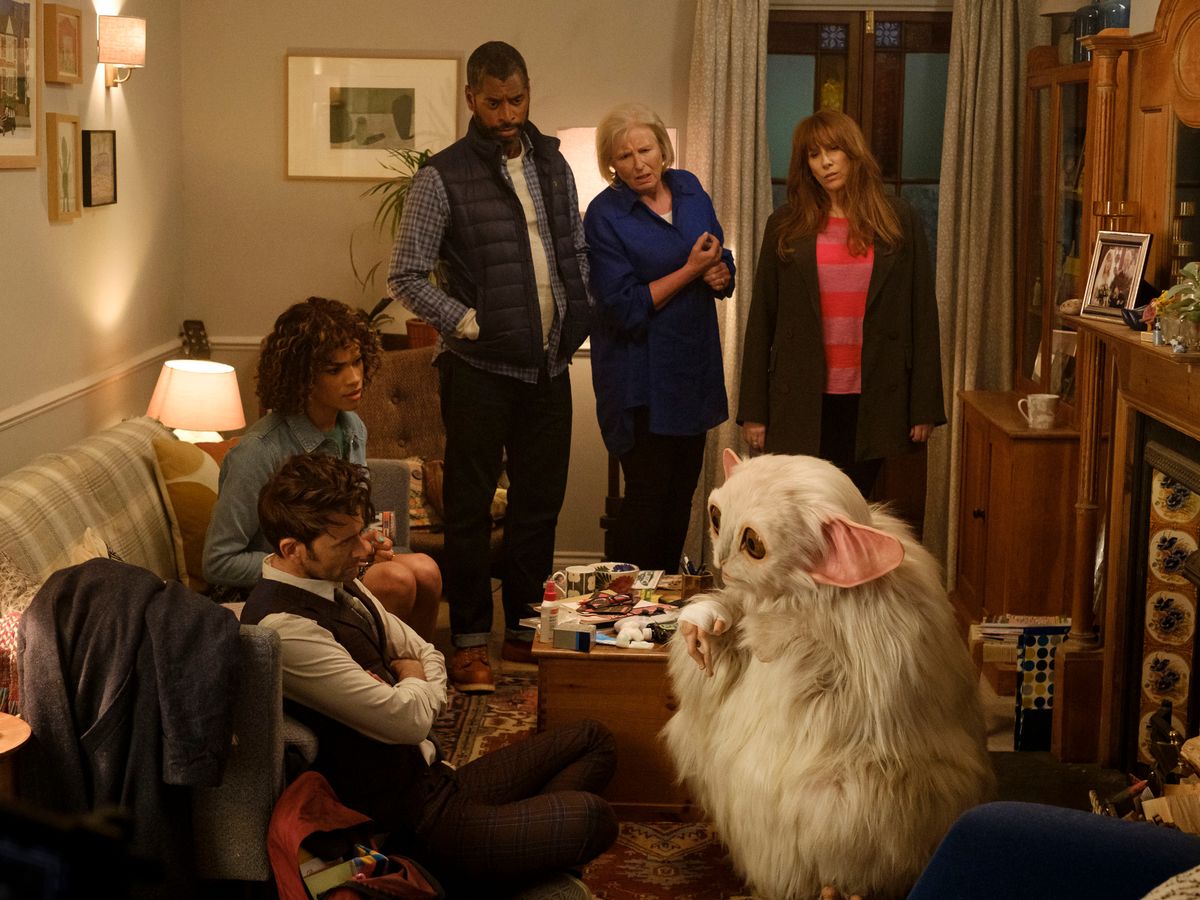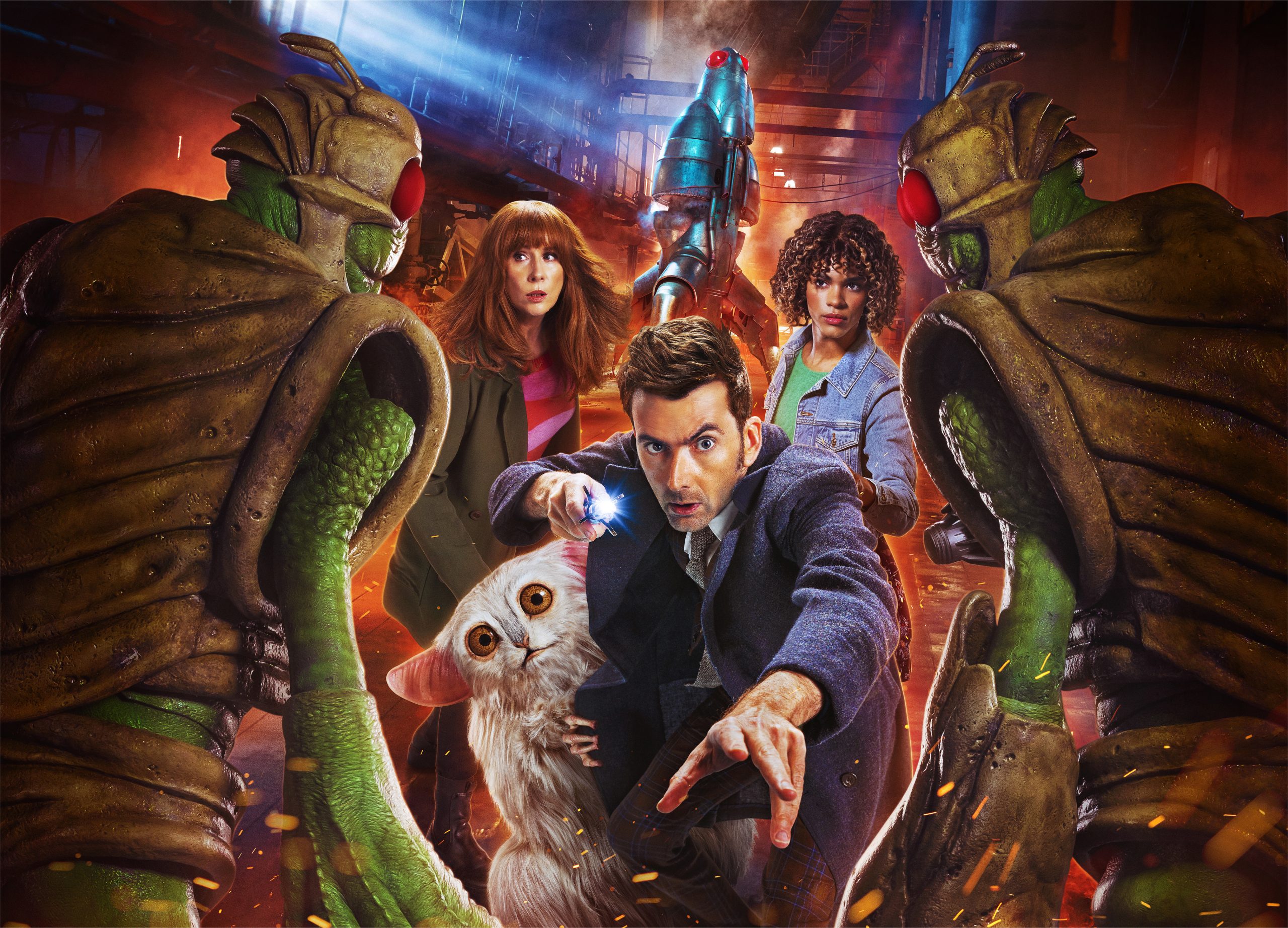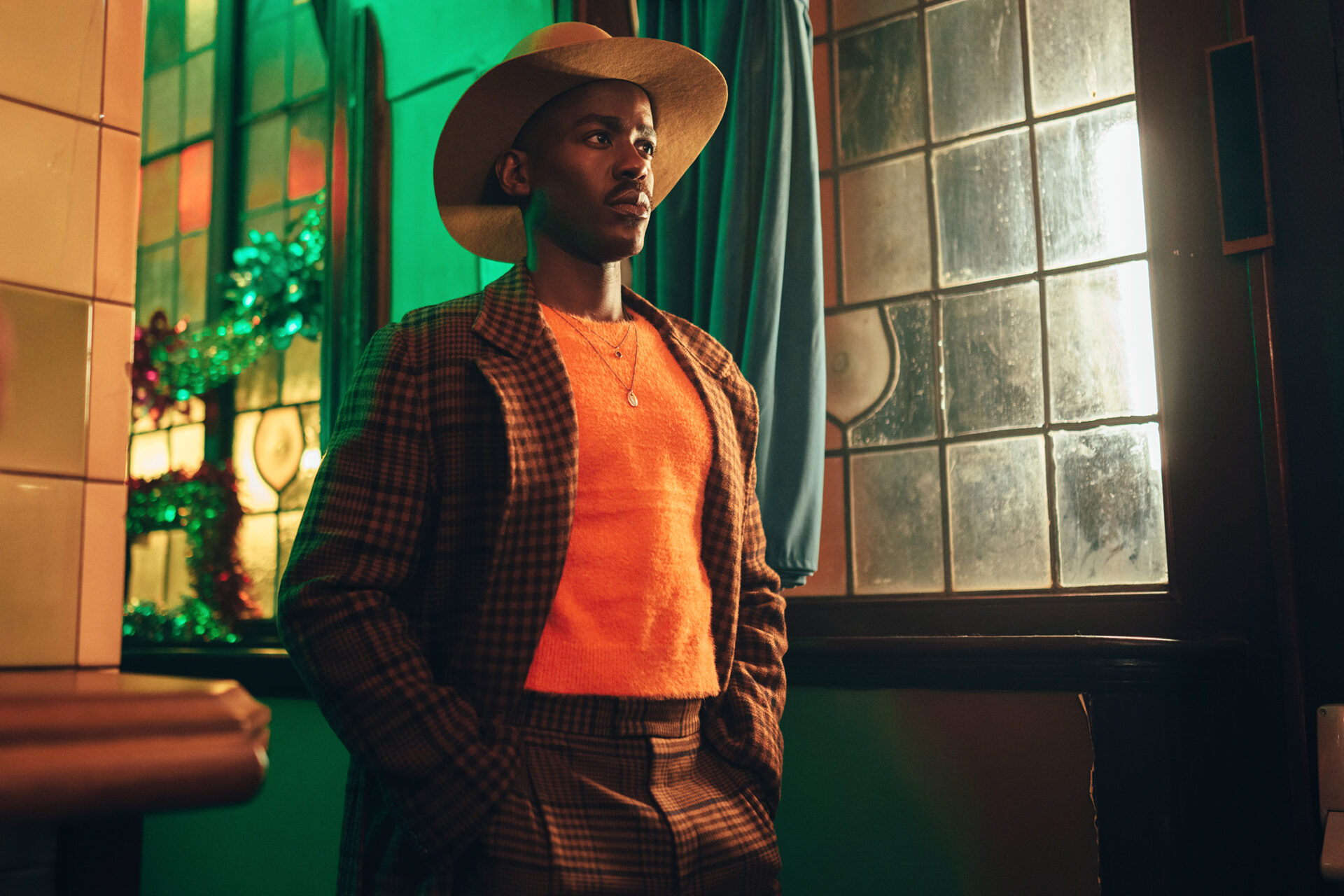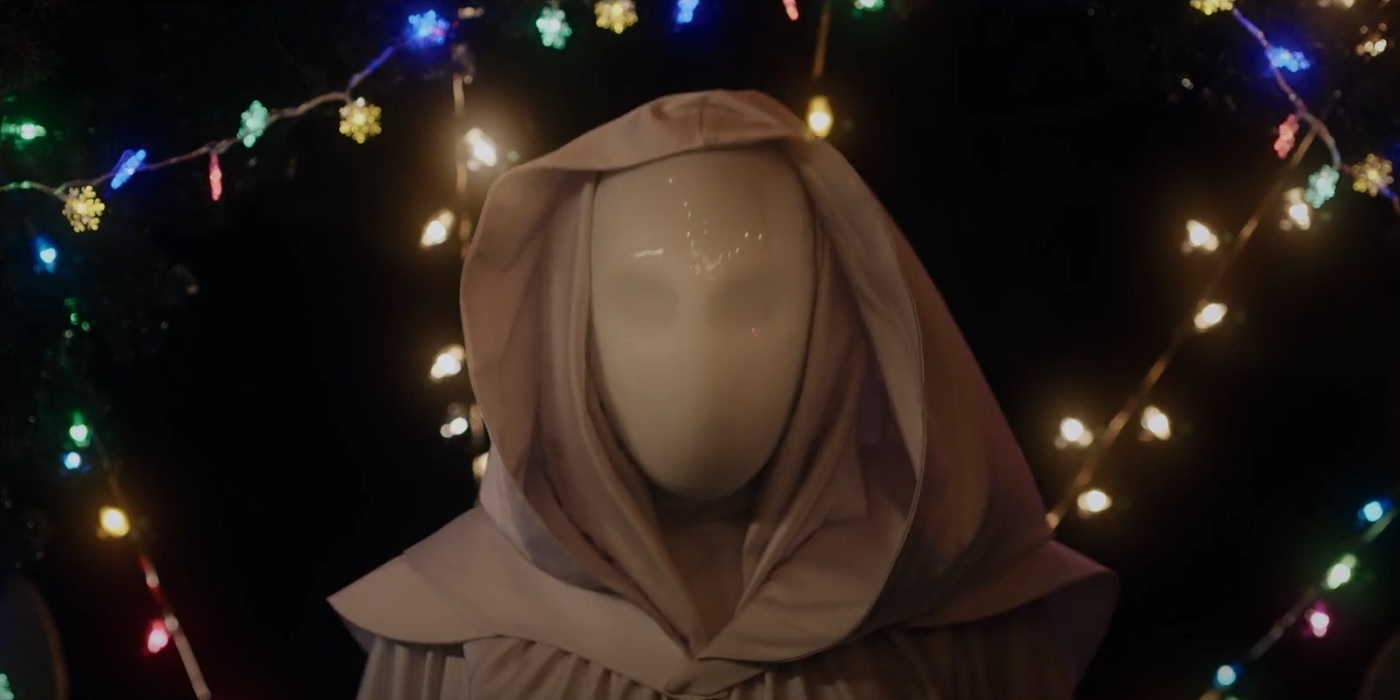‘Doctor Who’ Just Said “Trans Rights” — and It’s Complicated
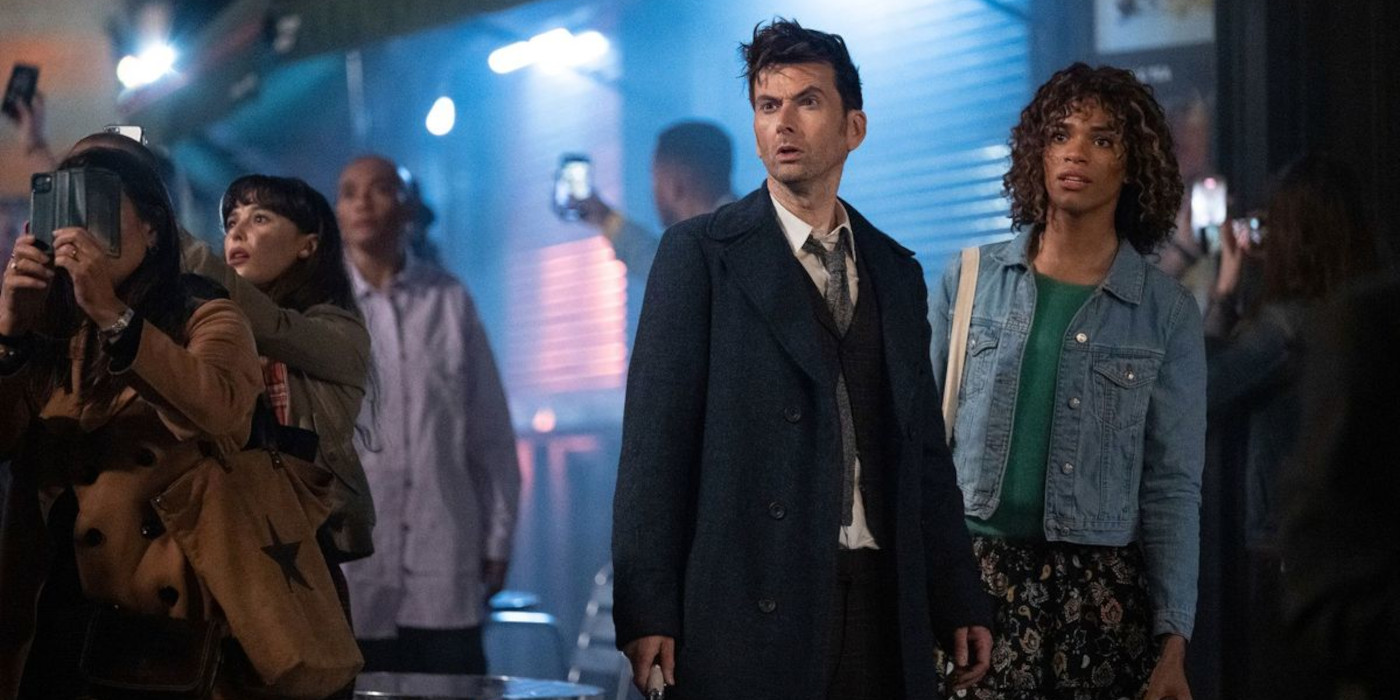
Doctor Who is back! And its first episode “The Star Beast” is loudly pro trans people. So why aren’t I happier? Well…
The first of three 60th anniversary Doctor Who specials, “The Star Beast” begins with its two lead actors, David Tennant and Catherine Tate, speaking directly to the camera. The episode picks up with the pieces of a story that dates back 15 years. It’s absolutely necessary to find some way to re-introduce the relationship between the Doctor and Donna Noble. Some people haven’t seen those Doctor Who stories in ages. Some people have never seen Doctor Who at all.
But a straight-to-camera exposition dump is spoon-feeding an audience rather than trusting them with context clues. And worse the sequence feels tacked on.
In a bit of unfortunate synchronicity, the unfolding story of Rose Noble (played by Yasmin Finney), Donna’s transgender daughter, suffers similarly. Rose’s transness is spoon-fed to the audience throughout “The Star Beast”. Much of Rose’s characterization places her transness first and everything else about her second. Even when Rose being a non-binary trans femme impacts the plot directly, it can feel forced in a way that undermines both story and character.
All that said, it’s very clear that showrunner Russell T Davies put a great deal of care and respect into “The Star Beast”. And so we’re going to approach criticizing the Doctor Who team’s treatment of trans people’s stories with equal care and respect. And that begins by saying, ironically straight-to-camera, that trans people are not a monolith. There are many of us absolutely beaming with joy, pride, and gratitude over “The Star Beast”. And there are those of us frustrated with it, too.
This is one person continuing a conversation which begins with “The Star Beast”.
Courtesy of BBC Worldwide
Rose Noble: The Good
Rose Noble is the daughter of Donna and Shawn. She is 15 years old. Rose helps her mom with money by making and selling stuffed animals. And she is nonbinary trans feminine. These are all facts we learn throughout the hour runtime of “The Star Beast”.
We are introduced to Rose when Donna sees the Doctor at the start of the episode. The Doctor and Donna have a conversation where Donna looks for Rose and then explains the stuffed animal fixings she’s carrying. It’s all standard exposition writing.
Some of Rose’s schoolmates deadname her as a bullying tactic. Donna is defensive. Rose just wants to move passed it. Rose is only 15 so we can safely imply that her public transition is new. It’s not surprising that she faces bullying, Most trans people experience this and we’re especially susceptible to being harmed by that treatment when we are young and early in transition.
There’s a bit of conversation between Donna and her mother Sylvia about Rose being trans. Sylvia frets over using the right pronouns. And this is clearly an acknowledgment that even a well-intended family is fallible. If you are trans, you have watched, in real-time, as your family adapts to things like new pronouns.
And then there’s the Meep, a fluffy alien just landed from space. Rose immediately protects the Meep. And part of Rose’s compassion stems from loneliness. Despite one of the neighborhood kids using her correct name, it’s clear Rose’s transness makes her feel isolated and alien sometimes. And that is not uncommon.
All these beats give Rose some depth. However, almost everything we learn up until this point about her in “The Star Beast” filters through the trans part of her identity. And that continues throughout the episode.
The Meep
The Meep is under Rose’s protection for the first half of the episode. And by extension, the Meep so too gets protection from Donna, Sylvia, Shaun, and the Doctor as well. There are two groups after the Meep: the Wrarth Warriors and U.N.I.T. soldiers under mysterious, alien control. At Rose’s home, her family, the Meep, and the Doctor find themselves besieged on all sides by these two groups.
In this moment, with danger all around, Rose scolds the Doctor for assuming the Meep’s pronouns.
Finding out someone’s pronouns is a respectful thing to do and ought to be normal practice in real life. It makes sense that Rose expects the Doctor to ask about pronouns where appropriate. And it makes sense for the Doctor to ask pronouns because that kind of compassion and care is core to every incarnation of the character.
But to have Rose demand pronouns be checked in the midst of mortal peril stretches credulity to its breaking point. It’s not that Rose wouldn’t and shouldn’t ask about pronouns, it’s the moment when it occurs that makes no sense. Even on a narrative level, asking pronouns here unnecessarily grinds the action to a halt. And more than that, it makes asking for pronouns seem silly by comparison.
This moment is a minor misstep but it’s the first as Rose’s story continues into the episode’s final act.
Rose and the Doctor Donna
Donna cannot remember the Doctor. If she does, latent Timelord energy in her mind will activate and she will die. But the dagger drive of the Meep’s ship is about to destroy London in the process of taking off. And the only way for Donna to help the Doctor stop it is by remembering. So she does. Donna Noble remembers everything. She helps the Doctor save the day. And then she dies.
Except of course, she doesn’t. It turns out that half of Donna’s Timelord energy passed down to Rose, giving both of them Timelord intelligence. And together all three of them save the day. And no one dies. Which is lovely.
But then we get a lot of exposition. The Doctor and Donna remark on how Rose is nonbinary. Rose even says the word “nonbinary” as she gains her latent Timelord power. Then, to explain what’s happened, they all jointly say, “Because the Doctor’s male and female. And neither. And more”.
A nonbinary trans femme person just helped save millions of lives. She does it because, like the Doctor and Donna, she is compassionate and kind. Rose’s transness isn’t what drives that. And centering Rose’s transness in this moment makes it seem like that is her whole identity instead of just a part of it. Even the wording implies that her transness is a result of the Doctor Donna existing and not just Rose simply being herself.
All these elements together make Rose’s story in “The Star Beast” feel stilted and incomplete. But there’s a chance to course correct.
The Future of Doctor Who
Rose is set to reappear on Doctor Who and my greatest hope is that her transness will become a seamless part of her identity, not her most defining trait. That’s the same hope I have for all trans and nonbinary characters in fiction because that’s what I want people to see when they look at any trans nonbinary person in the real world.
“The Star Beast” is the first of three David Tennant and Catherine Tate Doctor Who episodes. In 2024, Ncuti Gatwa and Millie Gibson take over the TARDIS. Throughout all this Russell T Davies will continue to serve as Doctor Whol showrunner. Davies’ mission statement involves good representation. He’s changed Davros to avoid the disabled trope. We have a trans recurring character in Rose. This is only the start. It’s not a bad start, but there’s room for improvement in realizing that mission.
When Rose and Donna let go of their Timelord energy, Rose says “After all these years I’m finally me”. I hope the writers of Doctor Who will joyously tell us so much more about who Rose is in the years to come.

